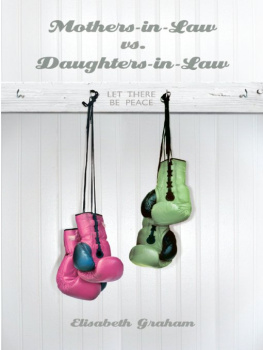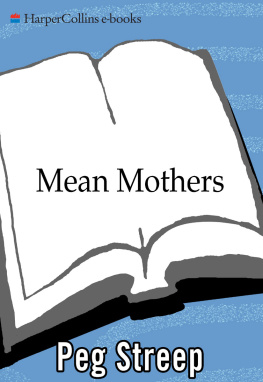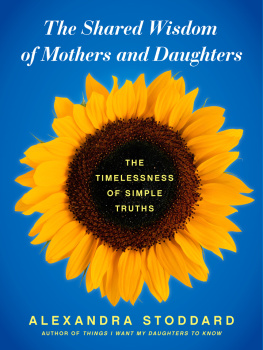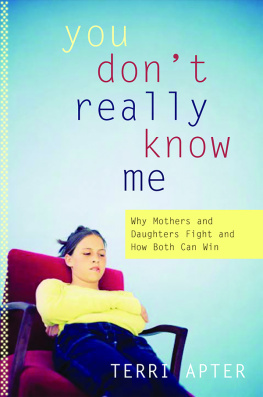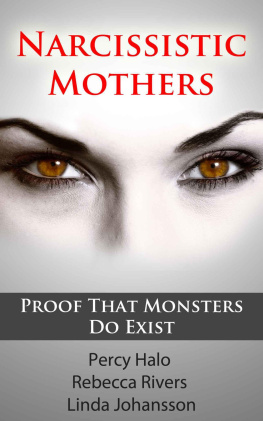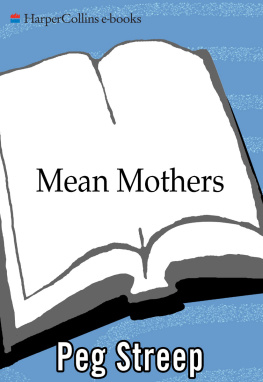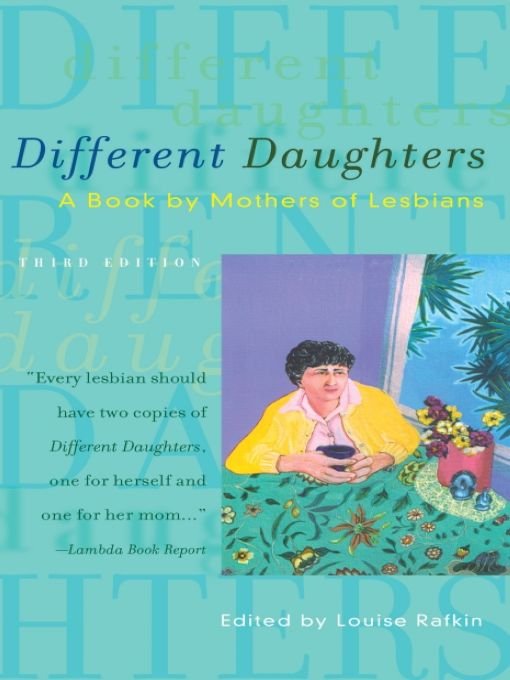Table of Contents
For Coleen Gragen
and all other motherless daughters
In loving memory of Susie Laws
ACKNOWLEDGMENTS
My heartfelt appreciation goes to the hundreds of women, both mothers and daughters, who came out and shared their stories at bookstores and community centers across the country after the publication of the first edition of this book. Thanks to all those in the media who rallied for Different Daughters, especially the producers who tooks risks with this subject material long before lesbianism was a popular topic on daytime TV. I would also like to thank Brbara Selfridge, honorary lesbian, for spousal support at my Geraldo! appearances.
Introduction to the Third Edition: Still Different After All These Years
Years ago, when I started the project that became the first edition of Different Daughters, I had no idea of the impact my innocently conceived idea would have on the lives of so many women. I was a young, newly out lesbian, with a generally agreeable mom who was isolated in a fairly small conservative community. I wanted both for her to connect with other mothers dealing with similar issues and to get an idea of what my life was all about.
At that time, the world was far less accepting of sexual minorities; the word lesbian was rarely mentioned in public. Lesbian characters had not yet been featured on evening sitcoms, and MTV she-roes were hardly outspokenly gay. No one would have dreamed that the words Lesbian Chic could sidle up together, yet alone be emblazoned across the cover of Newsweek magazine. Out lesbian politicians were scarce, and the idea of one being a member of the Presidents cabinet was unimaginable.
Much has changed for lesbians during the past fifteen years, and I for one find myself living a happier, more open life. Though full legal rights for homosexuals still seems a glimmer at the dawn of the twenty-first century, on a day-to-day basis I hardly notice that I am part of a once feared and scorned sexual minority. My family has always been fairly open to who I am, though over the years I have put them through quite a number of hoops. After some prodding, they now share freely in the personal issues in my life and, on many occasions, they have championed gay rights and challenged homophobia.
But such acceptance hasnt been quite as smooth for other women, despite our new status as pop cultural icons. With thirty-five thousand copies of the first two editions of Different Daughters in circulation, over the years I have received a constant stream of letters from both mothers and daughters spilling the details of the difficult process of loving across differences and despite judgments. The letters vary. There are missives by grateful daughters telling how Different Daughters helped them to reconnect with their mothers, as well as secretive notes from guilty and grief-stricken mothers asking if we might talkconfidentially. There have been hopeful letters from mothers thanking me for the book, as well as bitter letters from those who could not budge from their anger and disappointment.
All of this correspondence I have read with awe: I do not underestimate the importance of our finding acceptance within our families of origin. Running the risk of sounding like a Hallmark card or a Top Forty song: I believe in the power of love, to heal, to support us in this complicated and sometimes hostile world. I believe that prejudice and hate are overcome on a personal level, one relationship at a time. I also believe that many of the social and political problems we as gays and lesbians face could be better solved if we forged a wider support base, created coalitions that began in the opened arms of families and friends.
It still pains and angers me to hear the stories of the parents who have disowned their children. And these stories abound. I want to shake the disapproving parents and ask them, What do you think parenting is? Cloning? Did you expect your children to grow up to think like you? Be like you? Is there anything more important than giving love? Not in my opinion.
My experiences with a wide range of families, as well as my own relationship with my mother, has brought me to a new understanding of family dynamics. I came to understand that lesbianism is not always the big chasm in family relationships, but often a catalyst for difficulties in relationships that were already quite rocky or unresolved. Psychologists call this phenomenon the presenting problem, meaning that although lesbianism is often the named reason why parent and children arent getting along, under scrutiny, this is not always the real reason.
Once, at the Parents, Families, and Friends of Lesbians and Gays national conference in Chicago, I actually heard a mother complain about lesbian potlucks. What is it about lesbians and potlucks? she asked, her face quite full of pain. She was dressed immaculately, pearls and a gray cashmere suit. Why cant she give a dinner party like everyone else? I assured her there were lesbians who gave dinner parties, and straight people who held potlucks, but I dont think I fully convinced her. I saw her at the break bending the sympathetic ear of another finely dressed women. Their conversation was about futons. Yes! They sleep right on the floor! the other exclaimed. The problem was obvious to me: This womans class background was fueling her resentment of her daughters lifestyle. Everyone in Japan sleeps on the floor, I quipped as I walked past.
But mothers are not the only ones to target sexuality for all their daughters foibles. (Not that a futon on the floor is a foibledont get me wrong!) One recently-out lesbian complained to me that her parents were uninterested in her female lover. Were they interested in the men you dated before you came out? I asked. Hmm she admitted. Not really.
And the oft-heard: My mother hates what I wear. Really, isnt this a given? Can we fairly pin this on being lesbian? Even my straight friends say their mothers dont approve of how they dress. The bottom line is that parental schisms are common to all motherdaughter relationships. Still, the queer quotient is often used to further already entrenched family dynamics.
None of this is easy. Its easier to blame everything on homophobia than to dive head first into deeper waters. Better to dig in your heels at the edge of the pit than to plunge right into the muck. Who wants to sort through that messy stuff, especially with your parents? But, after watching scores of daughters unravel their issues with their parents, I recommend trying to unpack the issue of lesbianism apart from whatever else is going on in the family.
At the most basic level, parenting involves a commitment to unconditional loving, though, sadly, parents often try to control their offspring by withdrawing their love. I received one especially heartfelt letter from a woman who sent Different Daughters to her folks, only to find it returned to her mailbox. The words You are no longer our daughter were scrawled across the front of the package. I hope that one day these hardened hearts will break, and, in the breaking, break open. However, there are times I just want to rant and scream. Get over it and get on with it, I hear myself saying. Let your kids be themselves and move on to the important work of loving, supporting, and becoming friends with each other.


